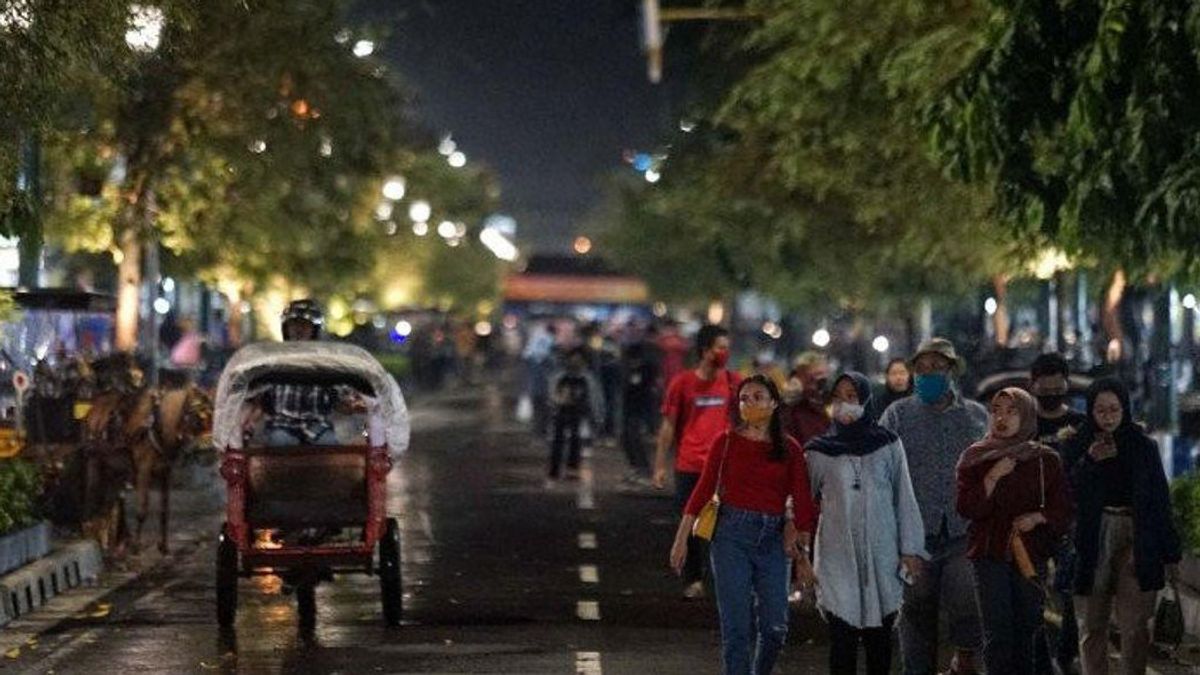JAKARTA - The authorities have announced a potential third wave of COVID-19 by the end of the year. A number of experts highlight the policy strategies that need to be taken. The situation was not easy after the disclosure of the PCR test business held by several state officials. Whereas the ideal control policy requires public trust.
Minister of Health (Menkes) Budi Gunadi Sadikin explained this potential in a virtual meeting with editors-in-chief of mass media, Wednesday, November 10. The spike in cases is predicted to explode again at the end of the year.
Budi explained the latest data on positive cases of COVID-19 in Indonesia, which reached 359 as of Saturday, November 13. In addition to the new cases, the recovery rate of 451 and the death toll of 16 people on the same day were also presented.
In his presentation, Budi also mentioned the global pattern, where the third wave has occurred in a number of European and Asian countries. In fact, it is important to note, these countries have high vaccination coverage.
"So we'll see, Japan went up in the third wave, Singapore went up, Malaysia went up, what happened in Europe, in the United States (US), Israel and the UK," said Budi.
Moreover, Budi also said that the third wave would be affected by the mutation of the corona virus. Looking at what happened in Europe and Asia, the third wave was caused by a delta variant mutation (B.1.6.1.7.2).

"For illustration, this is like a thug. So if a thug enters an area, for example Tanah Abang, there is one thug, but another thug is stronger than him, losing to the old thug.
"So indeed these delta thugs are relatively more dominant, more powerful, stronger, than other viral thugs. So every time he enters, he goes up."
Budi's statement is in line with that described by Dicky Budiman, an epidemiologist at Griffith University, Australia. He explained several indicators to see the potential for an explosion of COVID-19 cases. First, the number of vaccination achievements, as said by Budi.
Speaking of potential outbreaks, one of the main indicators that can be measured is how many groups of people are vulnerable, namely those who have not been vaccinated or have never been infected. The greater the number of vulnerable people, the greater the potential for emergency.
"If you look at the facts, for example in Singapore. He has 82 percent vaccination coverage, which is complete. This means that approximately 18 percent have not been fully vaccinated. Well, that's more than enough to make Singapore explode," said Dicky to VOI, Tuesday. , November 16.
"In the context of Indonesia, let's assume for example that 60 percent of those who are vaccinated at one dose have immunity ... I predict it will only take 60 percent who have been vaccinated once. So there are 40 percent who are vulnerable. Those who do not have immunity. more than enough as potential fuel for explosions," added Dicky.
In addition, looking at global facts and data, the decrease in antibodies or human immunity also has an effect. This happened in Europe. Another, as explained by Budi, is the potential for viral mutations. According to Dicky, the current Delta variant crisis is far from over. Not to mention the potential for the emergence of new variants.
"After six months there is a decrease in immunity in some people. This has an impact ... Another thing is that this variant delta crisis is still not over. Not to mention the potential for new variants that can worsen," said Dicky.
Government call
The head of the National Disaster Management Agency (BNPB), who is also the head of the COVID-19 Task Force, Lt. Gen. Ganip Warsito, explained several steps that the government will prepare to respond to a potential spike in cases at the end of the year: increasing the capacity of COVID-19 testing, pursuing maximum vaccination achievements, and tightening human traffic from abroad.
In addition, other steps that involve the relationship between the government and the community are also prepared. Call it the socialization that will be intensified and the Enforcement of Restrictions on Community Activities (PPKM).
Regarding these restrictions, Vice President Maruf Amin said the government would implement a number of policies to prevent a third wave from occurring. One of the things that will be done is the limitation during the Christmas and New Year (Nataru) holidays.
"Especially before the new year, where there is movement and there may be some restrictions around Nataru to avoid spikes like previous years," said Ma'ruf, Tuesday, November 16.
A more detailed explanation was given by Spokesperson for the Ministry of Transportation (Kemenhub) Adita Irawati. He explained that the restrictions would be enforced on the basis of regulations that are currently being discussed with a number of other relevant ministries.

"Perhaps in the tourism sector there is a tightening of conditions. Then capacity is also limited because if transportation is limited there will be queues and over capacity. This is not conducive to a pandemic situation," Adita said in a virtual discussion, Wednesday, November 3.
Adita further explained that the rules for restricting people's mobility during the Nataru era would be integrated. The government has appointed the Coordinating Minister for Human Development and Culture (Menko PMK) Muhajdir Effendy as the coordinator of spike prevention.
"We hope that in the near future the government can determine what strategy in handling Nataru so that people can carry out activities with some restrictions and on the other hand there will be no increase in cases," said Adita.
Why is people's trust in their government important?
Epidemiologist at Griffith University, Australia, Dicky Budiman, highlighted two policies that directly involve the community: socialization and PPKM. According to Dicky, the two policies became an important part of controlling COVID-19 in the second wave in the middle of last year. In this way, public trust in the government must be ensured.
"Moreover, talking about commitment, consistency, coordination, collaboration, and also communication. It will affect the trust of the public, the international community, the business world to the government," said Dicky, contacted by VOI, Tuesday, November 16.
"Without trust, we can't make a strong response. We see wave two, people are shown a really chaotic situation. That chaos. And there people really see this pandemic is real. Especially with so many deaths."
"In fact, far more than reported or discovered. It's a psychological effect that makes people immediately take protective measures. Humans are like that, yes. Primitive responses arise with him seeing a lot of death everywhere."
"But at that time I didn't have data related to trust, yes. What was clear at that time I saw the government doing very strongly. Science-based strategies. Even Emergency PPKM. Firm. And that's where the government showed the public had succeeded in controlling That's where trust starts to build, and even appreciation."
That trust must be restored now. The situation is more challenging now that a number of state officials have been involved in the COVID-19 business, especially PCR testing. A public policy analyst from Trisakti University Trubus Rahadiansyah highlighted this.
"I think there is a decline due to the authorities themselves who abuse of power," said Trubus, contacted by VOI, Tuesday, November 16.

From a public policy perspective, whatever the government does in the future will be more difficult. Public skepticism is inevitable. The worst impact is the presumption and accusation that government policies are coercion that only benefits the elite.
"That's what causes the public to see what the authorities or elites are saying is just a political jargon which is actually full of interests. It could be because it preserves power, money, popularity, position. All kinds of things."
Whereas according to Trubus, the ideal public policy is one that is able to create compliance and loyalty from the object of the policy itself. "So when loyalty can be built, then trust arises," Trubus.
The science of public policy explains this in the theory of the Relations of the State and Society. Harmony must be established. Especially in a pandemic situation, where every element plays an important role.
"When the community and government can collaborate, the level of trust is high. But when the collaboration is minimal, then one of them feels strong, this can not work," said Trubus.
*Read other information about COVID-19 or read other interesting articles from Yudhistira Mahabharata.
Other BERNASThe English, Chinese, Japanese, Arabic, and French versions are automatically generated by the AI. So there may still be inaccuracies in translating, please always see Indonesian as our main language. (system supported by DigitalSiber.id)









